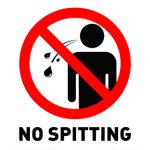Harm Minimisation and Beyond: An Interview with Unharm’s Will Tregoning

Australia has a long history of harm minimisation. Since 1985, reducing the risks associated with drug use has formed the basis of the nation’s National Drug Strategy.
Indeed, Australia has been a world leader in a field that acknowledges some people will use drugs regardless of what the law says, and aims to prevent or reduce drug-related injuries and deaths.
A history of harm minimisation
In 1986, an illegal pilot needle syringe program (NSP) was established in Sydney’s Darlinghurst.
This led to legalised NSPs being rolled out across the country and, today, Australia has some of the lowest rates of HIV amongst people who inject drugs in the world.
The Uniting Medically Supervised Injecting Centre was set up in Kings Cross in May 2001.
The first of its kind in the English-speaking world, the centre reduced the number of ambulance-call outs in the local area by 80 percent in its first ten years of operation.
The push for pill testing
2016 has been a big year for harm minimisation developments in Australia.
In February, three leading harm reduction experts announced they’d be trialling pill testing during this current music festival season, even if it meant breaking the law.
Those experts were Dr Alex Wodak, president of the Australian Drug Law Reform Foundation, Canberra emergency physician Dr David Caldicott and Will Tregoning, executive director of harm reduction group Unharm.
NSW premier Mike Baird made it clear the state government opposes the pill testing proposal. He labelled it “ridiculous” and likened it to condoning “what illegal drug dealers do.”
Other recent developments
On March 2, the Australian Parliamentary National Drug Summit was held. A group of our nation’s leading drug law reformists and politicians produced the Canberra Declaration.
The document calls for a new approach to dealing with illegal drugs. A move away from law enforcement strategies and the classing of personal illicit drug use “as a health issue, not a criminal one.”
In recent months, Matt Noffs, chief executive of the Noffs Foundation, and Dr Alex Wodak have been campaigning for the establishment of drug consumption rooms.
These facilities would operate like the current supervised injecting centre, but would be broader in scope and be equipped to deal with people who inhale drugs, such as ice users.
An Australian Greens motion was introduced into the federal Senate on August 31, calling on the Turnbull government to introduce a range of evidence-based harm minimisation policies.
Among other things, the motion called for the removal of drug sniffer dogs at events like music festivals, the introduction of pill testing and the rollout of NSPs into prisons.
The need for change
Unharm is a grassroots organisation established in 2014. It is “campaigning for safe, positive and ethical drug use.”
Sydney Criminal Lawyers® spoke with Will Tregoning, executive director of Unharm, about the group’s push for pill testing and the need to move beyond the harm minimisation paradigm.
Last February, you publicly announced you’d be trialling pill testing during this current music festival season. What’s happening with the proposed pill testing trials at the moment?
We’re seeing really good developments in relation to pill testing, in terms of increased willingness from politicians to engage with the issue and also a real swell of popular support.
When it comes to politicians though that support is much stronger outside of NSW.
We saw the NSW government respond in a very negative way to the proposal to have pill testing here. But elsewhere there’s a much greater willingness to engage.
So what that means is that there are better opportunities to establish pill testing services outside of NSW and that’s what we’re pursuing.
We’re pursuing those opportunities to work in jurisdictions where governments are more willing to have the conversation.
Here in NSW the police minister in particular has essentially recommitted to more of the same.
To more law enforcement led responses to the ongoing reality of illegal drug use. Essentially, what I’d call a commitment to failure and until Troy Grant moves on, I think that commitment to failure will be maintained.
How would a pill testing program work? And what sort of benefits would it provide?
Pill testing can operate in two ways. One is at places where there’s a concentration of people using illegal drugs and the best example of that is music festivals.
The other way they can operate is in a so-called High Street service, where a person can access the service on a Tuesday afternoon for example.
This is the model that currently operates in the Netherlands and it means that people are able to access the service even if they’re not from that group who attends music festivals.
But here in Australia the discussion is primarily taking place around music festivals, because that’s where people are dying in very high profile ways. And that has meant that the main policy problem is in preventing further deaths at music festivals.
Essentially it’s a formal service staffed by trained counsellors.
You can actually already do pill testing at home using a chemical reagent test kit. They’re legal to buy.
Can you buy these pill testing kits at the store or online?
Some stores carry them, but primarily online.
People can use them at home. But it’s an outdated technology that only gives an indication of the contents of a particular drug and it doesn’t come with any tailored advice about how to manage the risk given the result of the test.
So what we’re talking about are services that operate at a music festival. A person brings a substance to the service and a staff member takes a sample and analyses it using laboratory equipment.
For example in the UK Fiona Measham, who’s organisation The Loop has just done their first service at a music festival. They use a kind of technology that uses infrared to analyse, at the molecular level, what is present in a particular pill or powder. It tells you exactly what’s there and that’s what we need.
It also means that people who are using these drugs have an interaction with a trained counsellor who can assess where they’re at with their drug use and if relevant, refer them into other services that can help them if they need help to deal with problematic patterns of drug use. This is a great opportunity to make that referral.
The services also provide advice about risk management. They never endorse the use of a particular drug, but they will provide advice about how to manage the risk, as well as telling the person what the substance is.
We know that when people get that result, very often they decide to throw away the substance. There’s so much misrepresentation in the illegal drug market that people get sold ecstasy that doesn’t contain MDMA and when they find out what’s really in it, they want to get rid of it.
A really good example of that was at Secret Garden where that organisation The Loop did their first testing service in the UK. They found pills that contained concrete.
When they asked people, after they received the results of the test, what they wanted to do, 25 percent said that they wanted to throw the drugs away.
So these services have safe disposal bins, where people can securely dispose of the substances that they don’t want.
In 2012, Adriana Buccianti tragically lost her 34-year-old son Daniel after he took a drug – that was different to the substance he thought he was taking – at the Rainbow Serpent festival in Victoria.
She now works with the festival organizers advising attendees to consider their safety when it comes to drug use. She started an online pill testing petition last year that garnered 35,000 signatures.
Unharm recently launched a campaign with Adriana. What’s that all about?
Every summer, Adriana told me, she has a sense of dread because there are more deaths. And she knows how traumatic that was for her and what the families of those people will be experiencing.
So there’s a great urgency around this. Even though, we’re seeing some positive engagement from politicians, it’s not happening fast enough.
Adriana and Unharm have teamed up to set up a website called Tests not Arrests. It’s a place where people can easily email their local MP with a letter about why they should support pill testing.
It’s just launched and we’ve already seen some good engagement and responses from politicians – including conservative politicians – who are quite receptive to this idea.
So that’s exciting and we’ll be continuing to build up this campaign and pressure on politicians over the summer.
You’ve been a vocal critic of the NSW police drug detection dog operations. Last month, NSW Greens MLC David Shoebridge released new figures that show searches are in decline.
Do you think the campaign against the use of sniffer dogs is having an impact?
I think it’s definitely having an impact. One of the main impacts it’s had, is that it’s given people a sense that change is actually possible.
There’s now a consistent criticism being made about drug detection dogs that circulates every time this issue is back in the media. For example, every time there’s a music festival death, which has been way too frequently lately.
I think that campaigning has really galvanised the music festival community around the need to make change.
Whether or not the rate of searches is directly related to the campaign, is hard to say. But I think the dynamics of that issue have changed.
In the past, within police there was a sense of laissez-faire around running these operations. But the campaigning has perhaps raised the stakes in terms of police needing to make the case for running operations. But honestly, it’s speculation.
You’re the executive director of Unharm. What does your organisation do? And how did it come about?
Unharm is a campaigning organisation that recognises that we need a whole system change around the way we deal with drugs. And that people who have been the main victims of the war on drugs are the people who need to be involved in making that change.
The way that we’ve dealt with drugs over the last one hundred years has relied very much on prohibition and law enforcement.
But the reality is that the main difference between a person who experiences drug-related problems and a person who does not, has much more to do with the environment in which that person lives, their economic opportunities and their experience or lack of experience of traumatic events. That determines whether or not they will experience drug-related problems in their life.
Those are not issues that prohibition and enforcement can ever address. They’re only issues that whole communities, families and people can address.
And so, what we need is collaboration between government and people to change the system and to change laws, so that the laws enhance people’s capacity to take care of themselves and of the people that they care about.
So what we’re doing is providing a vehicle for people to be able to demonstrate support for change. As well as space – events and online spaces – where we can begin to develop a language for an alternative future and to grow people as activists on this issue.
And besides pill testing, what else is Unharm working on at the moment?
Pill testing isn’t a silver bullet, even for keeping people alive at music festivals. And so, it’s much more about shifting the way music festivals are managed, so that we’re promoting safety and responsibility, rather than an approach based on fear and intimidation.
That campaign Tests not Arrests is equally about that shift away from attempting to frighten people out of using drugs, as it is about pill testing in particular.
Essentially keeping people alive at events has three parts.
One is about safer drug use, which is, if you’re using drugs, legal or illegal, that you’re informed about how to manage the risks and that you exercise care and responsibility in using those substances.
Safer environments, which means continuing with the very high quality safety features we have at events. Like access to water and ambient temperature management and the presence of first aid and in some cases paramedics.
But also in addition to that, changing the experience of entering those festivals, so that when people enter them the interaction is about engagement and promoting care and responsibility, rather than a police led entrance scenario, where the communication is all about fear and intimidation.
And then there’s safer substances, which is about eliminating the most dangerous drugs from use and that’s where pill testing is an essential tool.
Pill testing sits around that more holistic approach around promoting safety at music festivals and that is our primary focus this summer.
But if that’s the campaigning work, a lot of Unharm’s work is also around movement building. And there, what we’re trying to do, is to help make a movement where people who use illegal drugs can participate fully and openly in that movement.
That involves running events, online and offline, where we can have open discussions about how to shift the system around drugs. People who use drugs are collaborators in making the better world that we want.
On August 11 this year, the NSW drug summit took place in Sydney. A group of NSW parliamentarians met to discuss drug policy.
On that day, you wrote an article that included the line, “Looking to the past, we can see why we need to move beyond ‘harm minimisation’ and towards a new approach to drug policy.”
So what is it about the harm minimisation approach of the past that shows we need to move beyond that paradigm? And what is the new approach to drug policy that you propose?
What we know about the harms of drug use is that they’re primarily the result of contextual factors: the characteristics of the person using the substance and the environment in which they’re using it.
What that then means is that if we want to reduce the harms related to illegal drug use, we need to look beyond the use of the drugs themselves and to those contextual factors.
And in fact, in order to prevent problems before they arise, we need to build up protective factors, which are things like an environment free from the experience of trauma or economic opportunity, where people can access employment.
Those are the kinds of things that are really where this fight is going to be won. And with that in mind, what we’re really talking about is promoting communities that care for their members.
In that sense, harm minimisation is just not enough. It’s overly focused on the drugs themselves and it’s really only treating what are in fact symptoms of a deeper problem. So we need to look at promoting safe and healthy communities, and at an individual level promoting well-being.
It isn’t just about reforming the law, it’s about system change. In recognising that what protects people from drug-related problems are primarily things that their community, their family, their friends and they themselves do, much more than it is about what the government does.
And there’s been this persistent narrative through the prohibitionist period that it’s really government that stand between us and some sort of social disaster.
That’s the whole logic of prohibition: that we need the government to eliminate these substances from the world and in doing so prevent addiction.
But the reality is addiction isn’t even unique to drugs, and certainly not unique to illegal drugs, and so the idea that government could ever solve this problem is clearly ridiculous.
But you do promote the legalisation of drugs?
To me, what that is supporting is people’s own capacity to take care and responsibility for themselves.
Right now, illegal drug markets persist and in those markets no one ever knows what they’re purchasing. And not knowing that, you can’t then manage the risk effectively.
If you are making those decisions to use a particular substance, if you don’t have any access to what it is or understanding how pure it is, it’s very hard to manage the risk accordingly.
Regulation of markets is about providing those resources to people, so they can take care of themselves.
It’s also about preventing some of the harmful effects of big illicit markets, which is what we’ve got right now.
The Australia illicit market is worth at least $7 billion dollars every year and all that money flows into criminal networks, which always and inevitably ends up corrupting police and politicians. As well as providing all this financial power to people who don’t necessarily have the best interests of society in mind.
And so again, regulation is about supporting the kind of society that is able to do right by itself, rather than a society where, for example, police are corrupted by drug money.
So you’re talking about a regulated market, where all drugs can be purchased like alcohol and cigarettes?
Not necessarily like alcohol and cigarettes.
I think that kind of regulatory model makes sense for a drug like cannabis, arguably it might also for MDMA, but for other substances getting the regulation right means looking at a range of regulatory options, which might include models that are closer to a prescription model.
So for example, for heroin, the Swiss, Germans and Dutch have successfully pioneered what they call heroin-assisted treatment for people who have a dependence on opioids and haven’t responded to other forms of treatment.
They can access pharmaceutically produced heroin, via prescription. This is a model that was proposed in Australia as early as 1997, and is long overdue to be introduced here.
The details of the regulatory framework would depend on the substance, because the regulation is meant to prevent people from harming other people.
And if a drug like heroin was freely and openly sold at the supermarket, you could see there would be substantial potential for retailers and manufacturers to cause harm to consumers.
So drug users would know what they’re purchasing and it would cut down on the black market.
But what about some people who’ve lived under prohibition their whole lives. They might think that if drugs were legalised, a lot more people would become drug dependent. There’d be a lot more use and a lot more crime. What would you say to them?
What that covers up is a permissive attitude toward failure. Because in endorsing the status quo, you’re endorsing a system that we know has not and is not ever going to work, and in failing has been hugely socially destructive.
In addition to that, we know at the moment that when people who use illegal drugs are surveyed, they again and again say that purchasing illegal drugs is easy.
It’s not lack of access that prevents people from using particular drugs, people who want to use drugs can already purchase them.
The market has shown that it’s able to expand to meet demand where demand exists. So the idea that the only thing between us and everyone getting high all the time is the fact that drugs are illegal, kind of ignores the reality of how economic forces operate in this and in every market.
And on a lighter note, Unharm are putting on the Undead party at Sydney’s Midnight Shift on October 29. What’s that in aid of?
Here in Sydney a community group under the umbrella of Unharm, called the Unharm Queer Contingent, has established over the past year and gone from strength to strength. They’ve had a bunch of community events, a film screening. They’ve got an online discussion space.
This is a party to celebrate the success of that initiative, as well as raising money for Unharm.
It’s on the weekend of the Day of the Dead, with DJs and what should be amazing performances.
Yes it’s a fund raiser, but it’s also a party that is intended to celebrate the community, because it’s a really important community.
When we think back to the gay club scene in Sydney, it was the place where community responses to HIV were born.
It helped shape the community that was able to respond to HIV in a way that balanced pleasure with promoting safety, and maintained a sense of realness to the community that it was involved with.
In the same way, in regards to drugs, queer communities have been innovators in drug use. They tend to use illegal drugs at a rate that’s higher than the rest of the population. And they’re also innovators in the ways to care for one another in club environments.
This is in a sense “just a party”, but it’s also acknowledging that “just the parties” were a site where these kinds of practices we’re trying to promote, communities and people taking care of themselves and one another, it’s a site where those practices have been pioneered.
Will thanks very much for speaking with us today. And good luck with the cause.
It’s a pleasure. Thank you.







